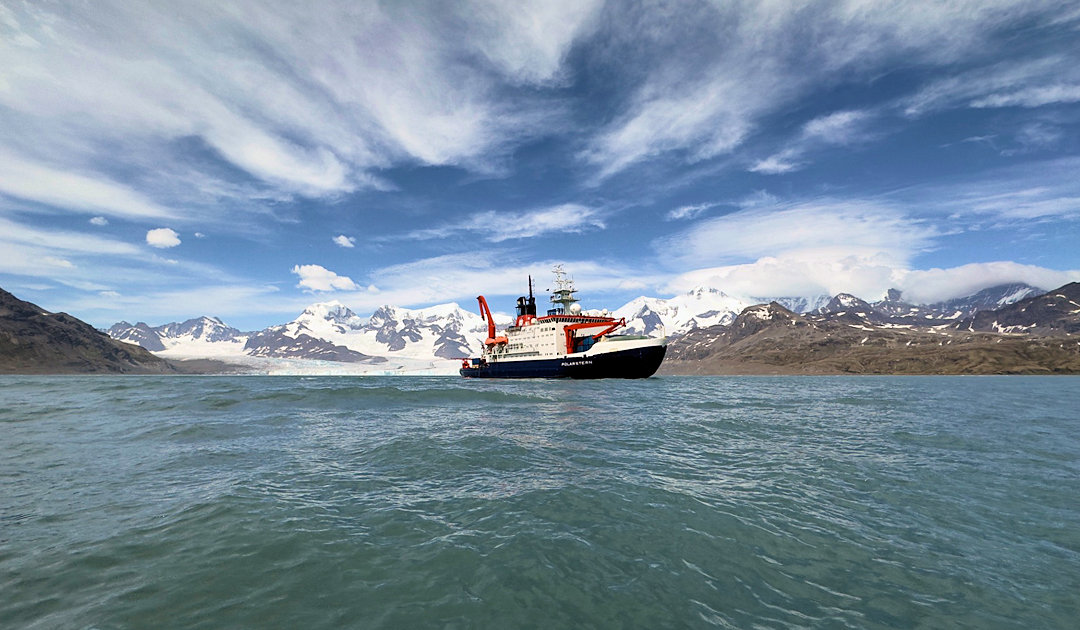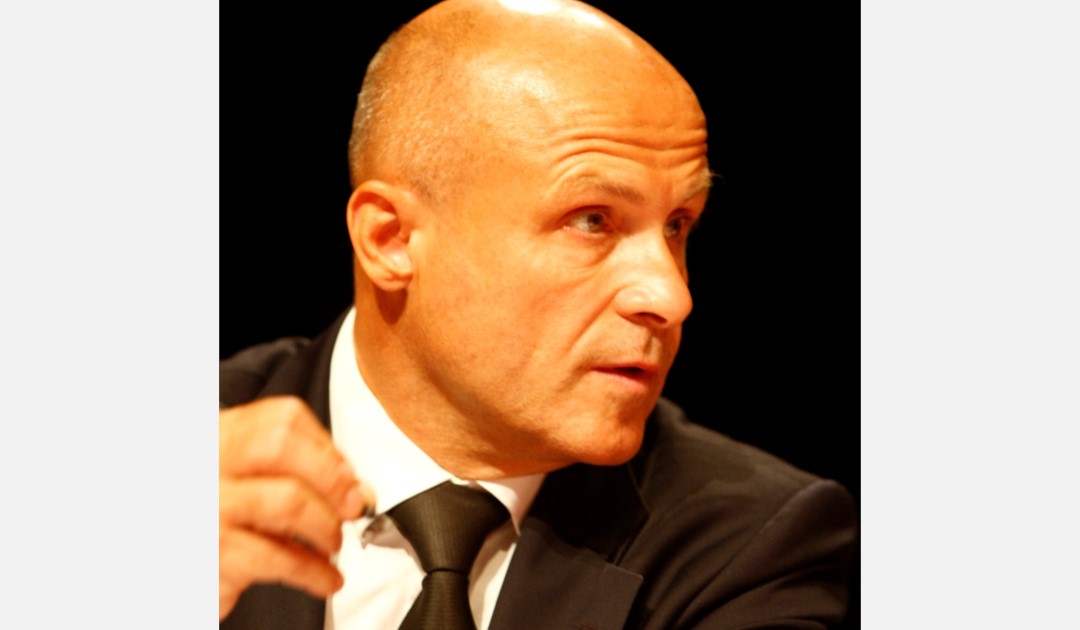
The first international polar summit will be held in Paris in November, organized by Olivier Poivre d’Arvor and attended by President Emmanuel Macron. An opportunity to bring the polar programming bill to life and refine French strategy.
It’s the start of the French polar season! Jimmy Pahun, centrist MP for Morbihan (French Brittany), returned from Greenland last Wednesday, where he followed the Greenlandia expedition to Ittoqqortoormiit. The week before, Olivier Poivre d’Arvor, France’s ambassador to the polar regions, returned from the North Pole. Coincidence? Not at all, the French polar agenda – at least – is gaining momentum.
Two movements are moving forward together. Since 2022, France has been deploying its polar strategy, presented by Olivier Poivre d’Arvor. This was followed by a financial analysis of polar research. This was followed by the draft law on polar programming, “corresponding to a total financial effort of almost 449.4 million euros between now and 2030”, co-signed by Jimmy Pahun, Clémence Guetté and 10 other MPs from across the political spectrum.
The One Planet – Polar Summit
Adding to this momentum, the One Planet – Polar Summit will bring together scientists, polar stakeholders and politicians in Paris from November 8 to 10, 2023. The event, organized by Olivier Poivre d’Arvor, will address issues of climate, biodiversity and peace.

Researchers from over 40 glacial and polar nations have been invited, including IPCC and IPBES experts, as well as NGOs, international institutions, representatives of indigenous peoples, private companies and political leaders (open conferences online here).
There will be two days of science on November 8 and 9 at the Muséum National d’Histoire Naturelle, and a political day on November 10 with the presence of the President of the French Republic at the Palais Brongniart. This will be an ideal opportunity to discuss France’s polar strategy and the proposed polar programming law.
One hundred and forty-two million
This proposal has yet to be adopted by the Assembly. “I’d like to see the government take it in hand,” comments Jimmy Pahun. The Prime Minister, Elisabeth Borne, could then defend a scientific, ecological and diplomatic program. However, the sum envisaged is rather considerable, but necessary if France is to position itself more effectively on this international stage.
The bill provides for 142 million euros over seven years for an “oceanographic research vessel adapted to the polar environment”. Will the plan be accepted? And with what other nautical resources, given that scientists want to be able to deploy more often?
On the one hand, the Arctic is becoming an inescapable place, the domain of great powers capable of projecting themselves there. On the other, it brings together “climate, biodiversity and diplomacy”, three themes that must be taken into account to guarantee a stable future.
Increasing the French presence
“The Germans have one, and there were Ifremer researchers on board the Polarstern. It’s a transitional solution, but it’s a very important tool. Perhaps it wouldn’t be the equivalent of the Polarstern, but a vessel better suited to the western regions of Greenland, such as Ilulissat,” explains Olivier Poivre d’Arvor.

The French government has already contributed to the financing of nautical resources, during the first five-year term of the current president, as part of the France 2030 project. These include Jean-Louis and Elsa Étienne’s polar sailing vessel Persévérance, currently cruising in the Arctic, and their Polar Pod scientific drifting platform project in the Southern Ocean. And let’s not forget the Tara Océan Foundation’s other Arctic-adapted platform: the Tara Polar Station. It will be built this autumn. And let’s not forget the Tara Ocean Foundation’s other Arctic platform: the Tara Polar Station. It will be built this autumn.
Ifremer’s fleet is also capable of carrying out operations in the extreme North Atlantic, but cannot really navigate in the ice. “There’s also a project to build a new Marion Dufresne that should be coming soon, so I think we need to plan for better management of the fleet in the future,” comments Jimmy Pahun.
Icebreakers flying the French flag are already active in the poles. The French Navy’s Astrolab operates in the Southern Ocean for the French Polar Institute’s logistics needs for a small part of the year. The Commandant Charcot, belonging to the Ponant company and registered in Wallis and Futuna, operates luxury cruises and takes a few scientists on board.
There are several approaches to increasing the French presence in the poles: redeployment of the fleet, construction and agreements with private players. This last aspect is controversial. Anne Choquet, a lawyer specialising in polar law at the Amure laboratory, has launched a study programme on the subject of science on cruise ships.
“An initial interministerial meeting on the poles was held at the beginning of July, and a second will take place between now and the end of the year. There will be science, defence, overseas collectivities, ecological transition… so that actions can be coordinated,” announced the ambassador for the poles.
Camille Lin, PolarJournal

Currently Ambassador to the Poles, Olivier Poivre d’Arvor was first a writer, then director of France Culture public radio, before becoming French Ambassador to Tunisia.
Image: MEDEF / Wikimedia Commons
Find out more about this topic:





